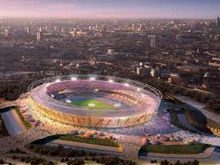Leveraging the legacies of sports mega-events
- Dates
- Friday 30 November (09:30) - Saturday 1 December 2012 (17:30)

Governments in regimes of every type have shown a new willingness to invest and intervene in sport directly, steer and develop sport policy more purposefully and, recently, to engage in bidding for and hosting sports mega-events (Olympics, FIFA World Cup, but also 2nd order events, such as the Commonwealth Games). The rationale behind the desire to stage global sports mega-events is usually based upon its hoped-for legacy, (e.g., increased international prestige; urban regeneration; greater sport participation). Thirty years ago it was difficult to interest states in putting on such elaborate and expensive events; now the competition to do so equals that on the playing field. The purpose of this workshop is to galvanise a wide variety of cross-UoB expertise and cross-college disciplines that do not usually work together. Whilst topical, the theme of sports ‘megas’ and their legacies has longer lasting promise to engage international scholarly exchange with past and future nations staging such events. Indicative of the breadth of engagement with this topic are the following: alleged international prestige and a domestic ‘feelgood factor’ among citizens deriving from the event; health benefits arising from an increase in physical activity and sport participation of the host nation’s citizens; urban and architectural regeneration, including developments in engineering; economic benefits and increased tourism and social inclusion through sport. From this truncated list alone we can engage sports scientists, psychologists, political scientists, economists, geographers, architects, health scientists, sociologists and engineers. The evidence-base for the diverse legacies claimed by advocates of sports ‘megas’ is relatively thin, to say the least. Part of the rationale for this workshop is the start of sustained inter-disciplinary research to add to our knowledge of the effects of sports mega-events on health, infrastructure, image, motivation for physical activity and so on. regeneration, including developments in engineering; economic benefits and increased tourism and social inclusion through sport. From this truncated list alone we can engage sports scientists, psychologists, political scientists, economists, geographers, architects, health scientists, sociologists and engineers. The evidence-base for the diverse legacies claimed by advocates of sports ‘megas’ is relatively thin, to say the least. Part of the rationale for this workshop is the start of sustained inter-disciplinary research to add to our knowledge of the effects of sports mega-events on health, infrastructure, image, motivation for physical activity and so on.
The aim of the IAS workshop is to bring together international experts with UoB scholars to reflect and draw upon previous sports mega-events, including London 2012. This offers an excellent opportunity to inform future mega-event hosts, in particular, developments in Brazil. To this end the 2nd day of the workshop focuses on Brazil, which as one of the world’s key ‘emerging’ powers is set to hold not one but two global sports ‘megas’ in the near future (FIFA World Cup, 2014; Olympics, 2016). The IAS workshop offers a ‘critical mass’ of scholars within which to ‘embed’ the Brazil-focused seminar. Day 1 will be about the key legacies in the diverse areas touched on above, whereas day 2 will offer ‘lesson-learning’ or ‘policy-transfer’ for Brazil. The fact that sports ‘megas’ increasingly go to emerging markets (e.g., Russia [winter Olympics];Qatar [FIFA World Cup]) means future states bidding for sports ‘megas’ are likely to be interested in what has and what has not worked in previous events. Tangible outputs include initiating an international and UoB internal network of scholars working on this theme, including a peer-reviewed Special Issue of a journal. 5 world-leading experts on sports ‘megas’ have been invited and will present their ideas.
Internal attendees: Geography: Professor John Coaffee; Social Policy: Dr Nathan Hughes; Sportex: Drs Matt Bridge, Mark Griffiths and Symeon Dagkas; Engineering: Dr Regina Santos; UBS: Zena Wooldridge; International Office: Andrea Edwards; Business School: Dr. Fiona Carmichael and Prof. Jo Duberley; Centre for Obesity: Dr Eliot Marston; MDS: Professor Janet Lord.
External attendees: UK Sport; DCMS; Sport England; Selected Sports National Governing Bodies; UK-based scholars: Prof John Horne; Prof Mike Weed; Prof Sugden; Prof Tomlinson; Prof Gratton; Prof Bairner; Prof Maguire; Prof Houlihan; Dr Brittain; Dr Xin Xin.
International Invitees: Brazilian Ambassador to London; Prof David Black (Dalhouse Uni, Canada); Prof Bob Stewart (Victoria Uni, Australia); Prof Scarlett Cornelissen (Stellenbosch Uni, South Africa); Prof Wolfram Manzenreiter (Uni of Vienna); Prof Amita Baviskar (Delhi University); Prof Laurence Chalip (UIUC, US) (unconfirmed).